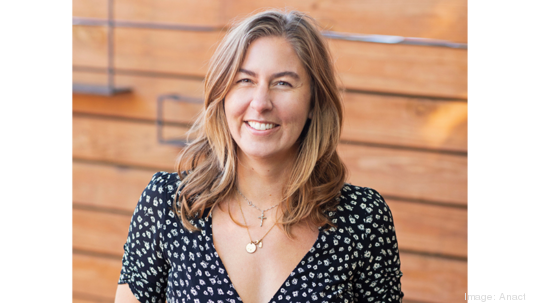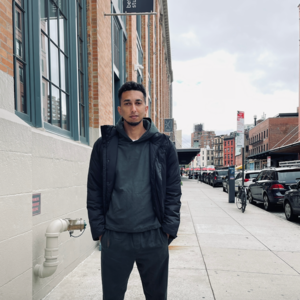
Jacksonville-based hemp towel company Anact is Brianna Kilcullen’s attempt to take on the textile industry, replacing its dominant fiber — cotton — with a more sustainable option: hemp.
Since launching her business on Kickstarter in 2020, with $41,400 pledged of her $35,000 goal, Kilcullen has been focused on establishing the dominance of Anact, whose towels are made of 55% hemp and 45% cotton, in the sustainable towel market. By one important measure, she’s succeeded: the top non-sponsored Google search result for “hemp towels” is Anact.
There have been challenges, though. According to Karen Bowling, director of the Center for Entrepreneurship and Innovation at the University of North Florida’s Coggin College of Business, one difficulty was getting Anact’s prices low enough to be competitive in the sustainable towel market. As a 2020 graduate of the Center for Entrepreneurship and Innovation, and a member of its first cohort, Kilcullen worked with Bowling to get Anact off the ground.
Indeed, while Kilcullen’s website claims sustainability can be achieved “without a sacrifice,” hemp bath towels from Anact currently sell for $35, which is significantly higher than many conventional cotton bath towels which can be found for $10 and under on Amazon. According to Anact’s founder, though, this price is not based on any inherent difficulty with cultivating and processing the fiber itself, so much as it is the politics of hemp.
For nearly a century before the 2018 Farm Bill, hemp, along with other cannabis plants, were effectively illegal to cultivate. When the Farm Bill legalized hemp, however — recognizing its under-0.3% THC composition means it can’t get you high — it did so in a way that makes its cultivation far more regulated than other crops, and which gives states considerable latitude over how that regulation occurs.
The bureaucratic complications of this meant Kilcullen had to manufacture her hemp products in China, due partly to the lack of existing nearby infrastructure, she said. The result of all this, she went on, is an absence of local economies of scale, causing higher prices.
“If we increase the market share, if we increase the supply, the prices are going to drop,” Kilcullen said.
In the meantime, Anact’s founder isn’t concerned her prices will impede her company’s ability to grow. Much of Anact’s business model is predicated on the hope that environmentally-conscious consumers — especially a younger crowd whose focus on climate Kilcullen has seen repeatedly on TikTok — are willing to pay more now for a greener future. By crowding into cotton’s market share, the hope is that the politics of hemp will be reformed, and the infrastructure for its cheap manufacturing will be built in the United States, all of which would make hemp cheaper and perpetuate its success.
While Anact’s first two years in business, 2020 and 2021, have not seen profits — 2021 was “nearly break-even,” she said — Kilcullen said her company is on track to make at least $500,000 in sales this year, up from $100,000 in 2020 and $170,000 in 2021.
She also anticipates the shift to becoming profitable will come from securing wholesale accounts, moving from a predominantly online business to a predominantly wholesale one. Right now, she said, 80% of Anact’s revenue is generated online, while 20% is through wholesale. She aims to reverse those figures — to 80% wholesale and 20% online — so she can sell in bulk and enjoy recurring sales.
Kilcullen, whose background in nonprofits and humanitarian work includes time spent helping former child soldiers in Uganda, said entrepreneurship seemed like the fastest way for her to achieve climate goals, compared to paths like politics or nonprofits.
“I’m a conscious capitalist … I’ve found we’ve been able to have the biggest impact in the for-profit sector,” she said. “I don’t think business is bad. I think the way we’ve been doing it is bad.”








